What Animals Live In The Australian Outback?
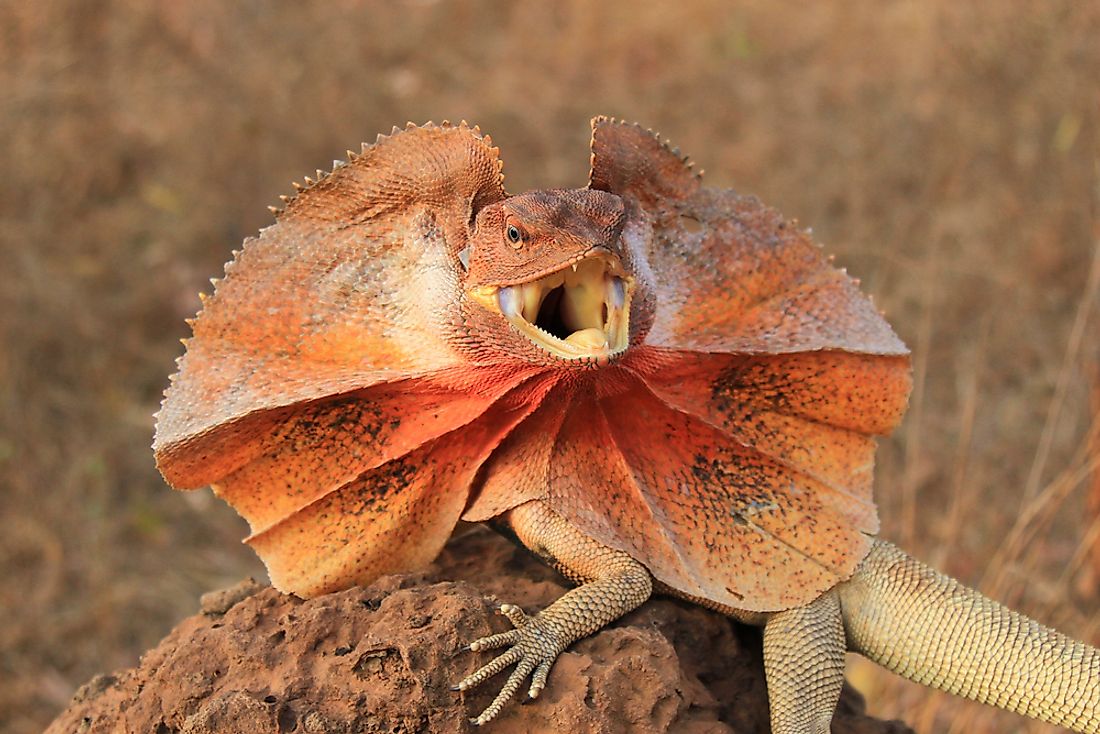
The vast and desolate interior of Australia is called “The Outback”. Many people visualize the place as an arid desert but the Outback can be divided into several climatic regions ranging from tropical to arid, semi-arid, and temperate. In general, the Outback is characterized by low population density, low-intensity land uses, and moderately to highly intact natural environment. The Outback also hosts a plethora of flora and fauna that varies according to the different habitats of the various Outback regions. The remoteness of the places in the Outback and the raw nature of such locations attract many adventurers and backpackers to explore them. The fauna of these places also lures many nature lovers to the Outback. Some of the most notable animals of the Australian Outback has been mentioned below.
9. Kangaroos
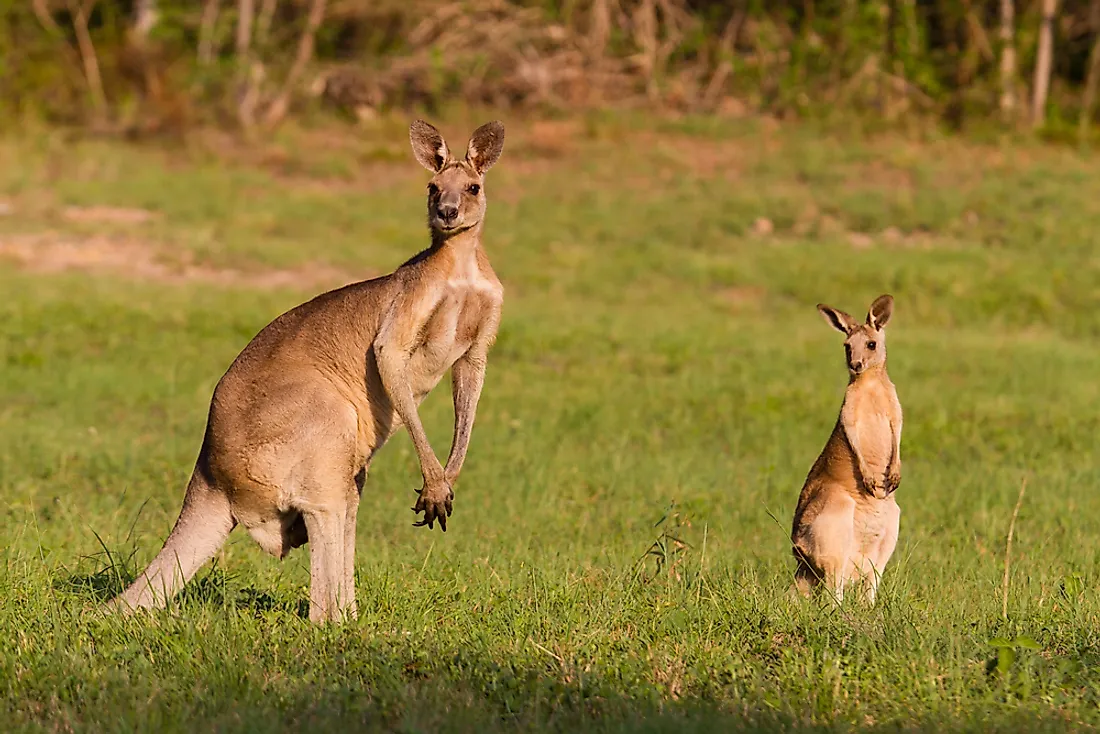
Kangaroos are the most commonly sighted animals in the Australian Outback. They are marsupials of the family Macropodidae. Kangaroos are found not only in the Outback but also throughout the country. These animals are indigenous to Australia. Kangaroos are most noted for their characteristic leap on their large, powerful hind legs. A long muscular tail helps in maintaining balance during such movements. Like other marsupials, female kangaroos also have a pouch on their abdomen where their offsprings called joeys undergo postnatal development. Kangaroos are well adapted to survive the dry environments of the Australian Outback. For example, a female kangaroo can freeze the development of her fertilized embryos until the joey in her pouch is fully developed and ready to leave her for an independent life. The fast leaping movement of the kangaroo also allows it to travel long distances in a short time in search of food in the extreme environments of the Outback.
8. Sand Goanna
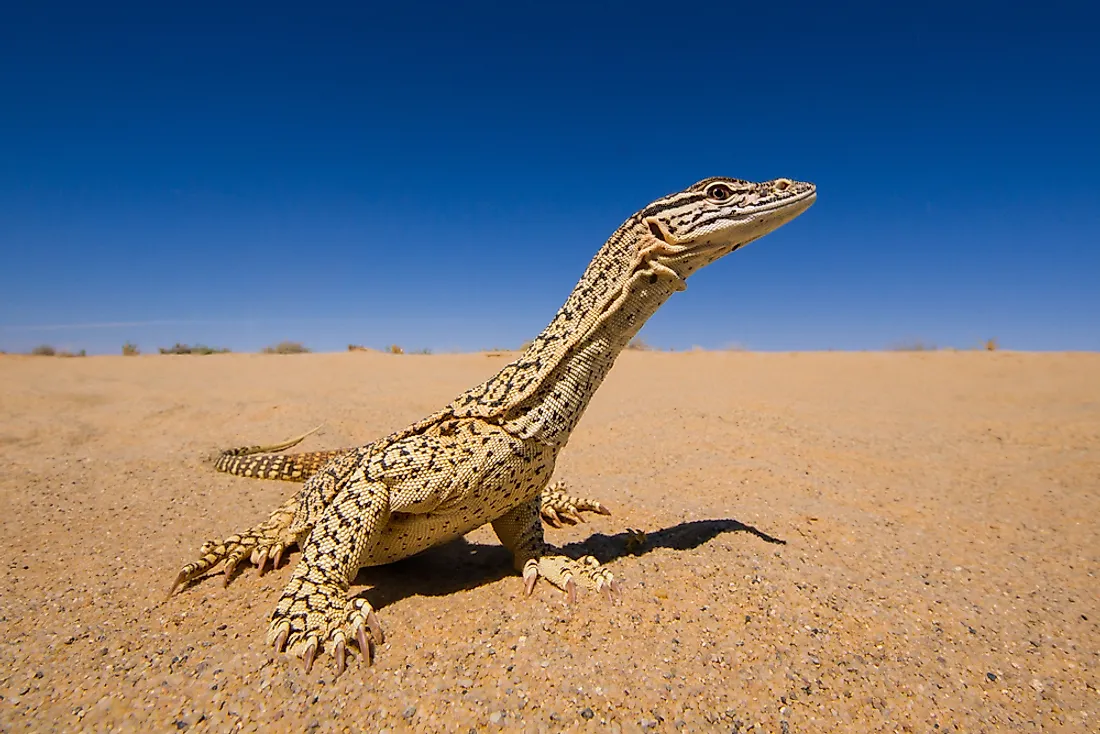
The Outback is rich in lizard diversity. The large Australian monitor called the sand goanna is one such species. It is a ground-dwelling lizard found in grasslands and woodlands of northern and eastern Australia. It is a diurnal species that prey on mice, insects, snakes, birds, and also consumes carrion.
7. Venomous Snakes
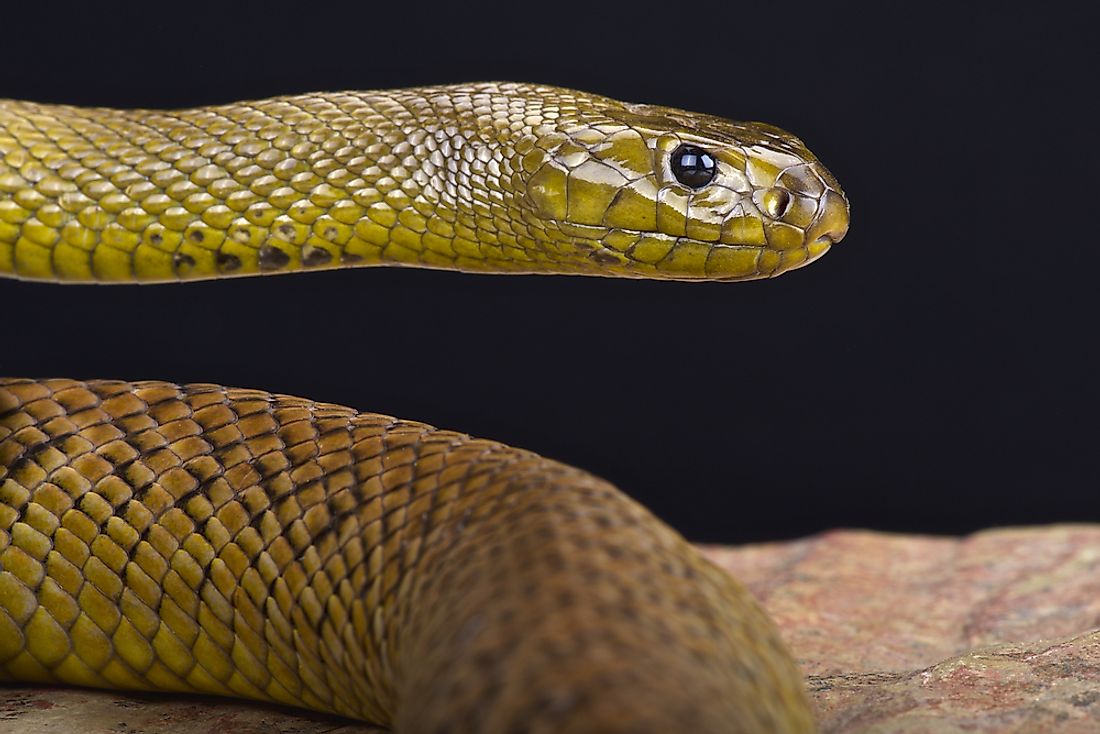
Perhaps the biggest danger lurking in the Australian Outback is its venomous reptilian residents. Several species of venomous snakes like the common death adder, desert death adder, red-naped snake, orange-naped snake, mulga snake, dugite, curl snake, speckled brown snake, and others call the Outback their home. Many of these snakes have venom potent enough to kill an adult human being within minutes. These snakes feed on the small mammals, birds, insects, and other reptilians found in their habitat. The inland taipan, the world’s most dangerous snake in terms of median lethal dose value in mice, is also found in the Outback. It is estimated that a single bite of this snake can kill 100 adult men.
6. Stimson's Python
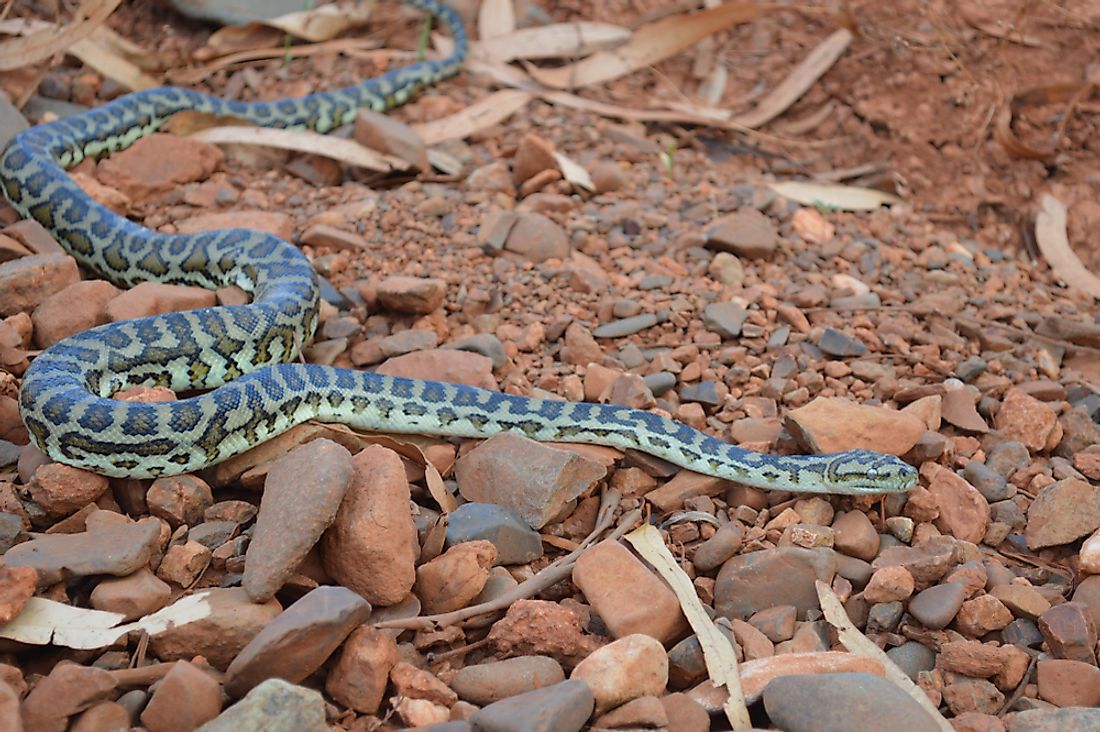
The Stimson's Python is a python species found in the Australian Outback. The species is endemic to Australia. Like other pythons, the Stimson’s python also traps and asphyxiates prey but is non-venomous. This snake has a widespread distribution in Australia including the dry inland areas. It is found in a wide variety of habitats like deserts, Eucalyptus woodlands, arid shrubland, and rocky areas. The python lives in holes and crevices made by other animals in termite mounds. Small mammals, frogs, and lizards constitute the diet of these snakes. This species is often captured to be sold as pets.
5. Thorny Devil
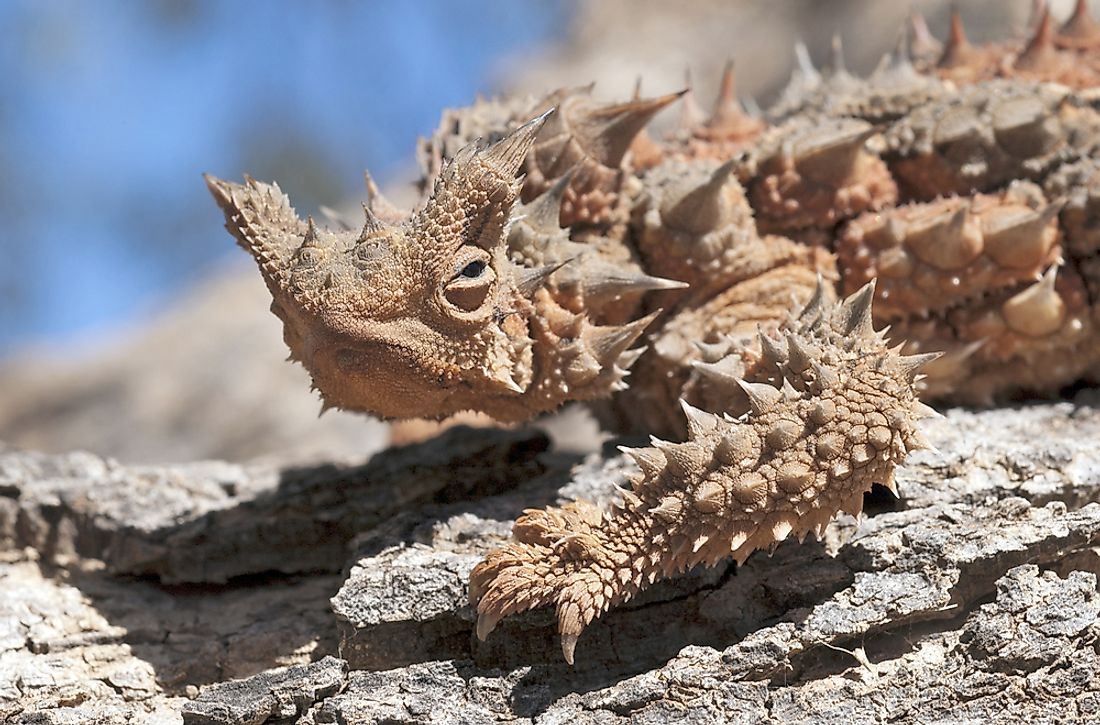
The Moloch horridus is a lizard species that is endemic to Australia. It inhabits the arid scrubland and deserts of Central Australia. It gets its name from the intimidating array of spikes that covers the entire dorsal surface of its body. These spikes help the thorny devil defend itself from its predators. Ants constitute most of the diet of this species. Thousands of ants can be consumed by a single individual in a day. The thorny devil derives moisture from the condensation of dew on its body at night.
4. Saltwater Crocodiles
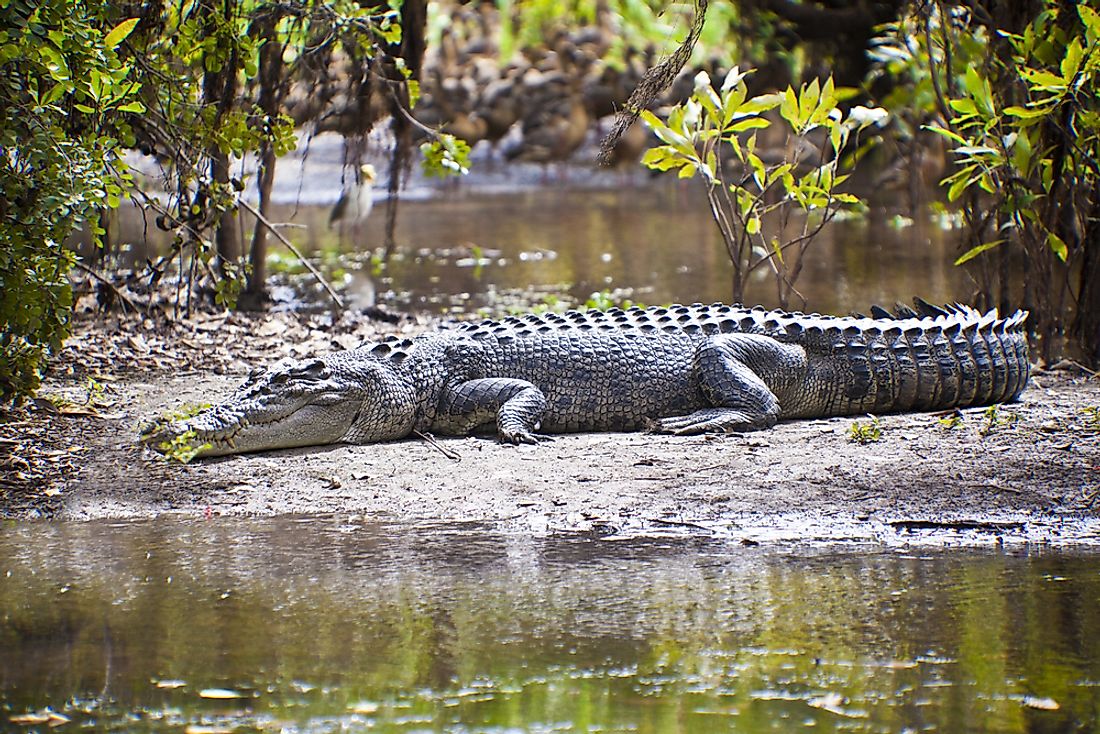
Saltwater crocodiles or “salties” are one of the most dangerous animals living in the Outback. However, human encounters with these crocodiles are rare and hence only a few human deaths due to crocodile attack are recorded in Australia. The salties have a broad diet including fish, turtles, wading birds, wild pigs, buffaloes, cattle, and more. In Australia, salties are not only found in the brackish water along coastlines but exist throughout the country including the remote interiors. Here, they live in freshwater rivers, billabongs, and swamps.
3. Dingo
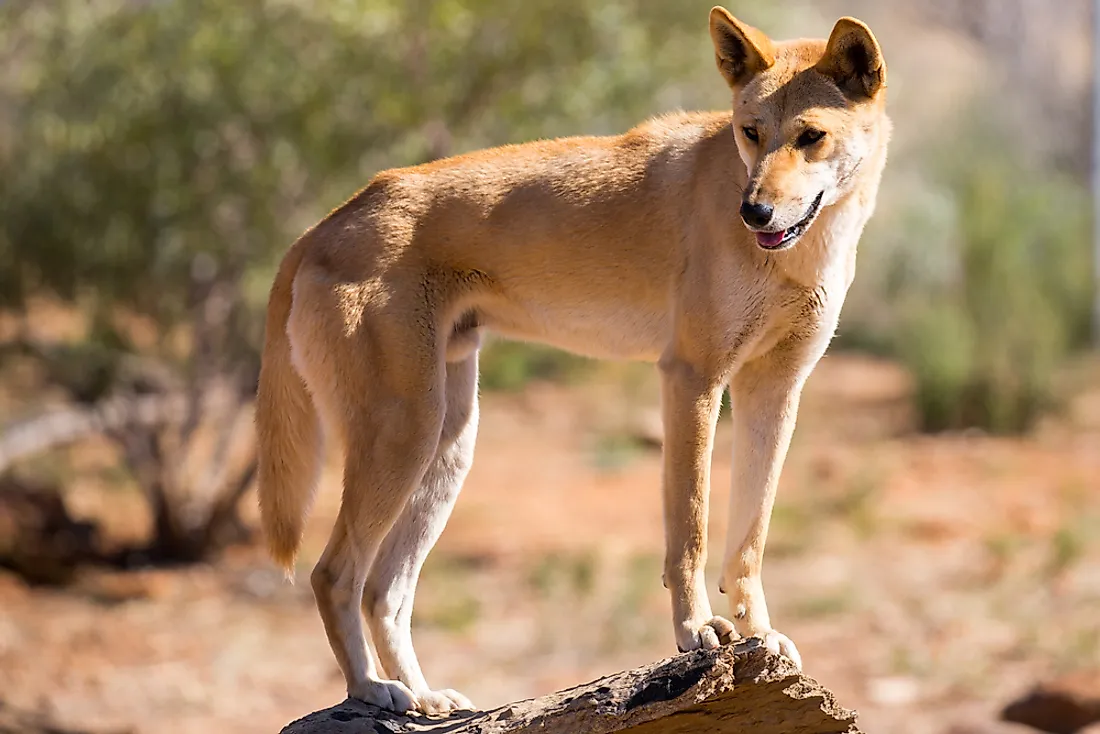
The dingo is a wild dog that is native to Australia. It is one of the larger mammals seen in the Australian Outback. These dogs have lean and hardy bodies that allow them to run fast and have great stamina. The coat color of these animals varies from light ginger to black and tan or creamy white. Like kangaroos, dingos are found in most of Australia. However, some parts of the country like the southwest and a part of the eastern coast does not host these animals. Dingos feed on a variety of prey including red kangaroos, birds, fish, reptiles, frogs, insects, etc. Dingos tend to live in small family groups of a mating pair and their recent offsprings and occasionally, offsprings from the previous year. Today, the dingo is suffering from declining populations and is listed as a “vulnerable species” on the IUCN Red List.
2. Frilled-necked Lizard
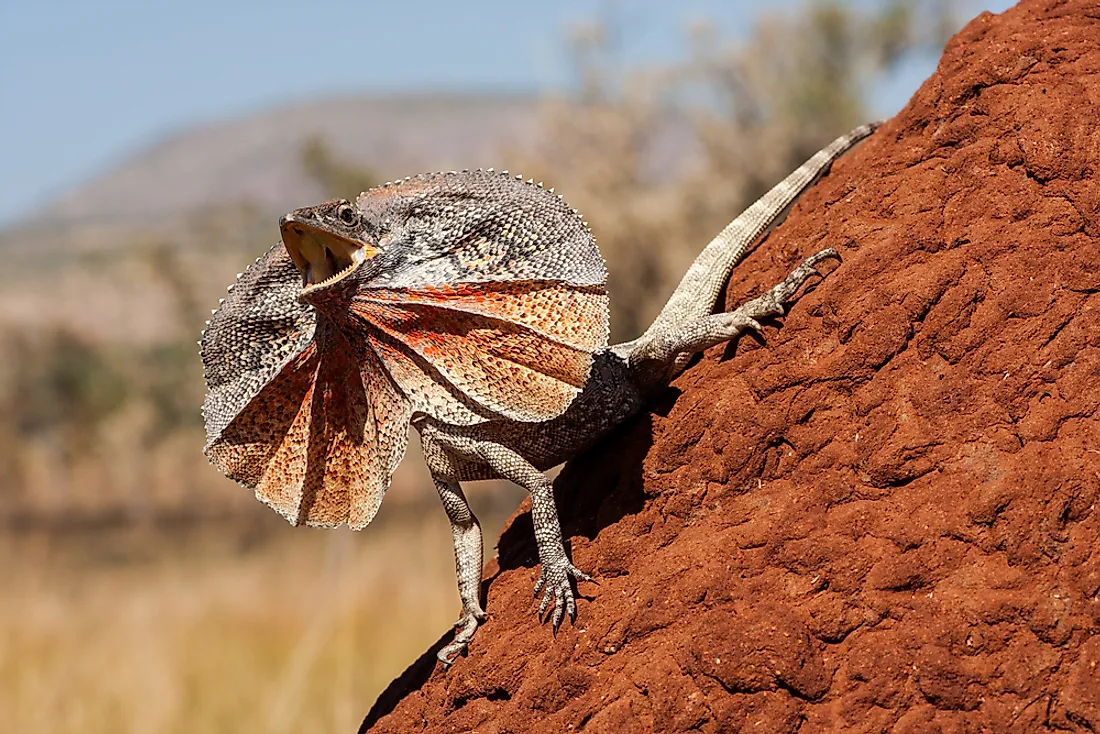
The Chlamydosaurus kingii is endemic to Australia and New Guinea. It mainly lives in northern Australia but is occasionally found further inland in the lower desert regions of the country. It is noted for the frill around its neck. These lizards spend most of their time on trees and come to the ground for foraging or to engage in territorial conflicts. Insects and occasionally spiders and other lizards are the prey of this species.
1. Australian Feral Camels
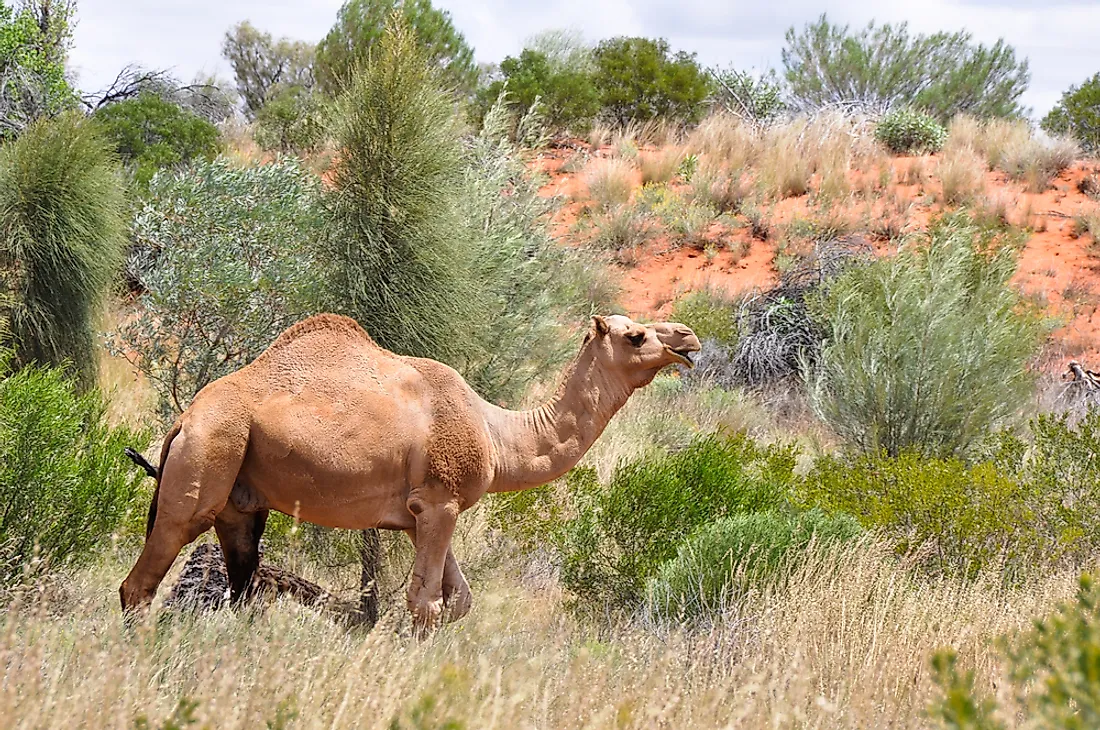
The arid habitat of the Australian habitat is ideal for camels who are well adapted to survive in such extreme environments. The region has large feral populations of both Bactrian camels and dromedary camels. The ancestors of these camels were brought to Australia in the 19th century from Afghanistan and British India to be used as a mode of transport during the colonization of western and central parts of the continent. After motor vehicles replaced them in the first half of the 20th century, these camels were of no use and released into the wild where they survived and multiplied.











